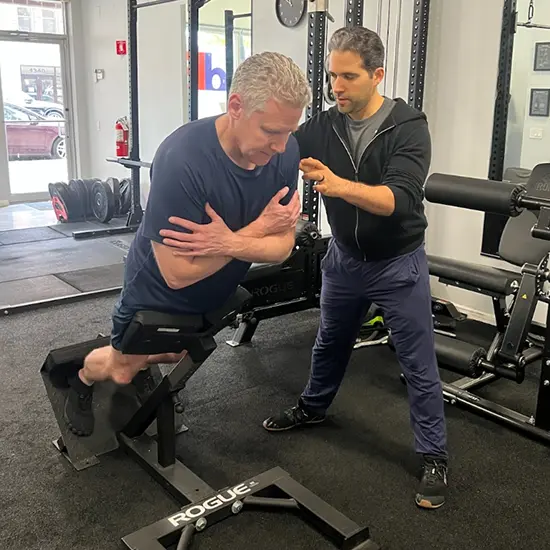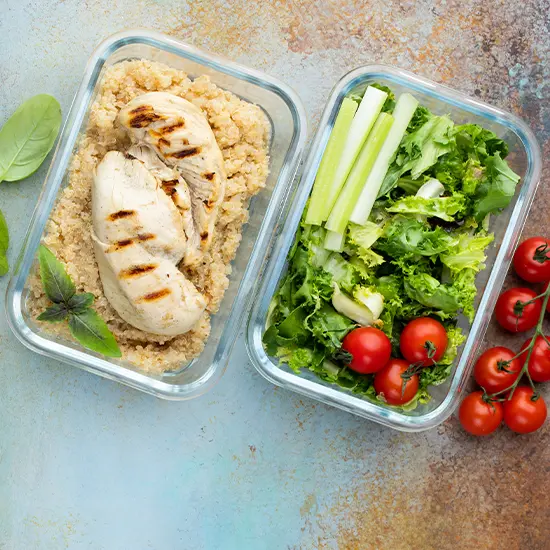Table of Contents (_workinprogress_)
As a nutrition coach, I’ve worked with countless clients who struggle with their relationship with food. Whether it’s chronic dieting, emotional eating, or an unhealthy fixation on “clean eating,” many of us have some form of unhealthy baggage when it comes to fueling our bodies.
The good news is, it doesn’t have to be this way. By cultivating just a handful of simple, sustainable habits, you can start to heal your relationship with food and make peace with nourishing your body. In this post, I’ll share five powerful habits that have helped my clients in Chicago and beyond reclaim a positive, intuitive approach to eating.
Habit 1: Practice Mindful Eating
In our fast-paced and distracted day to day, it’s all too easy to scarf down meals without truly experiencing them. We multitask through lunch, shovel food into our mouths while standing at the kitchen counter, or binge on snacks in front of the TV.
Mindful eating is the practice of bringing your full attention to the act of nourishing your body. It involves slowing down, savoring each bite, and actively engaging your senses. When you eat mindfully, you’re more likely to feel satisfied, digest your food properly, and avoid overeating.
Try these mindful eating techniques:
- Sit down at a table, free from screens or other distractions.
- Notice the colors, textures, and aromas of your food.
- Chew each bite thoroughly, paying attention to the flavors.
- Check in with your hunger and fullness cues throughout the meal.
Consistent mindful eating practice can help you cultivate a deeper appreciation for food, tune into your body’s needs, [1] and establish a healthier, more intuitive relationship with nourishment.
Habit 2: Honor Your Hunger and Fullness
Many of us have learned to ignore or override our body’s natural hunger and fullness signals. We’ve been conditioned to clean our plates, diet through hunger pangs, or reward ourselves with food regardless of our body’s actual needs.
Reconnecting with your internal hunger and fullness cues is a game-changer when it comes to healthy eating. When you honor these signals, you’re able to fuel your body appropriately, avoid restriction and deprivation, and steer clear of the binge-restrict cycle.
Tune in by:
- Pausing before eating to assess your true hunger level.
- Eating slowly and stopping when you feel comfortably full.
- Experiment with hunger scale of 1-10, where 5 is neutral.
- Notice physical signs of hunger like an empty stomach or low energy.
- Observe fullness cues like a satisfied, content feeling.
Honoring your body’s needs takes practice, but it’s a habit that can profoundly transform your relationship with food.
Habit 3: Reject the "Good" vs. "Bad" Food Mentality
In today’s diet-driven culture, we’ve been brainwashed to believe that certain foods are “good” while others are “bad.” This all-or-nothing thinking sets us up for feelings of shame, guilt, and failure around eating. It also leads to an unhealthy obsession with “clean eating” and deprivation.
The truth is, there are no inherently good or bad foods. All nutrients, from protein to carbs to fats, play an important role in a balanced, healthy diet. When you reject the moralistic food labels and focus on moderation, you free yourself to truly enjoy a wide variety of nourishing foods.
Try reframing your mindset by:
- Removing “good” and “bad” labels from your food vocabulary.
- Embracing the idea that all foods can fit into a healthy lifestyle.
- Practicing compassion with yourself when you indulge in “forbidden” foods.
- Focusing on how foods make you feel, not just their nutritional value.
Letting go of the good/bad food dichotomy is key to cultivating a joyful, sustainable relationship with eating.
Habit 4: Plan Ahead, But Remain Flexible
We can often struggle to maintain healthy eating habits amid the demands of daily life. While planning and preparation are crucial, it’s also important to remain flexible and adaptable.
Develop the habit of making thoughtful, nourishing food choices in advance, but don’t be too rigid about sticking to a plan. Life happens, and the ability to pivot gracefully is a hallmark of a healthy relationship with food.
Some strategies:
- Meal prep healthy staples at the beginning of the week.
- Keep a running grocery list and shop with intention.
- Pack portable, nutrient-dense snacks for on-the-go.
- But also leave room for spontaneity and unplanned indulgences.
- Remind yourself that one “off-plan” meal won’t derail your progress.
This balanced approach helps you build structure and predictability around eating, while also allowing for the flexibility to respond to your body’s needs and the realities of daily life.
Habit 5: Seek Joy and Satisfaction
Perhaps the most important habit of all is cultivating a sense of joy and satisfaction around food. So often, we approach eating from a place of deprivation, restriction, or an obsessive need for control. But nourishing your body should be an act of self-care and celebration, not punishment. [2]
When you learn to view food as a source of pleasure, comfort, and community, your relationship with it transforms. You’re able to savor each bite, feel truly satisfied, and experience the deep fulfillment that comes from honoring your body’s needs.
Simple ways to seek joy and satisfaction:
- Cook meals you genuinely enjoy, not just “healthy” ones.
- Indulge in favorite comfort foods, in moderation.
- Explore new recipes and cuisines that excite your palate.
- Eat with loved ones and make mealtimes a social experience.
- Notice how different foods make you feel – not just physically, but emotionally.
Embracing the joy of eating is a powerful antidote to the diet mentality. It’s the key to establishing a lifelong, positive relationship with food.
Putting it All Together
Improving your relationship with food isn’t about perfection or deprivation – it’s about cultivating sustainable habits that serve your physical and emotional wellbeing. By practicing mindfulness, honoring your body’s signals, reframing your mindset, planning with flexibility, and seeking joy, you can transform the way you think about, prepare, and experience nourishment.
As a nutrition coach in the West Loop, Chicago area, I’m here to support you on this journey. Let’s work together to build the habits that will empower you to have a healthy, fulfilling relationship with food for years to come.
External Links
[1] Nutrition Source (Harvard) – Mindful Eating – click here.
[2] Help Guide ORG – Mindful Eating – click here.
Read Also
Meal Prep 101: Planning Your Nutrition for the Week – click here.
The Link Between Nutrition and Mood – click here.

Vince Alessia
Fitness & Nutrition Expert
As his passion for health and wellness grew, Vince went on to pursue a bachelors degree in Nutrition at the University of Illinois at Chicago as well as becoming a Certified Personal Trainer. Believing in continuing education, he did not stop there, he also received his certification from the National Academy of Sports Medicine.






